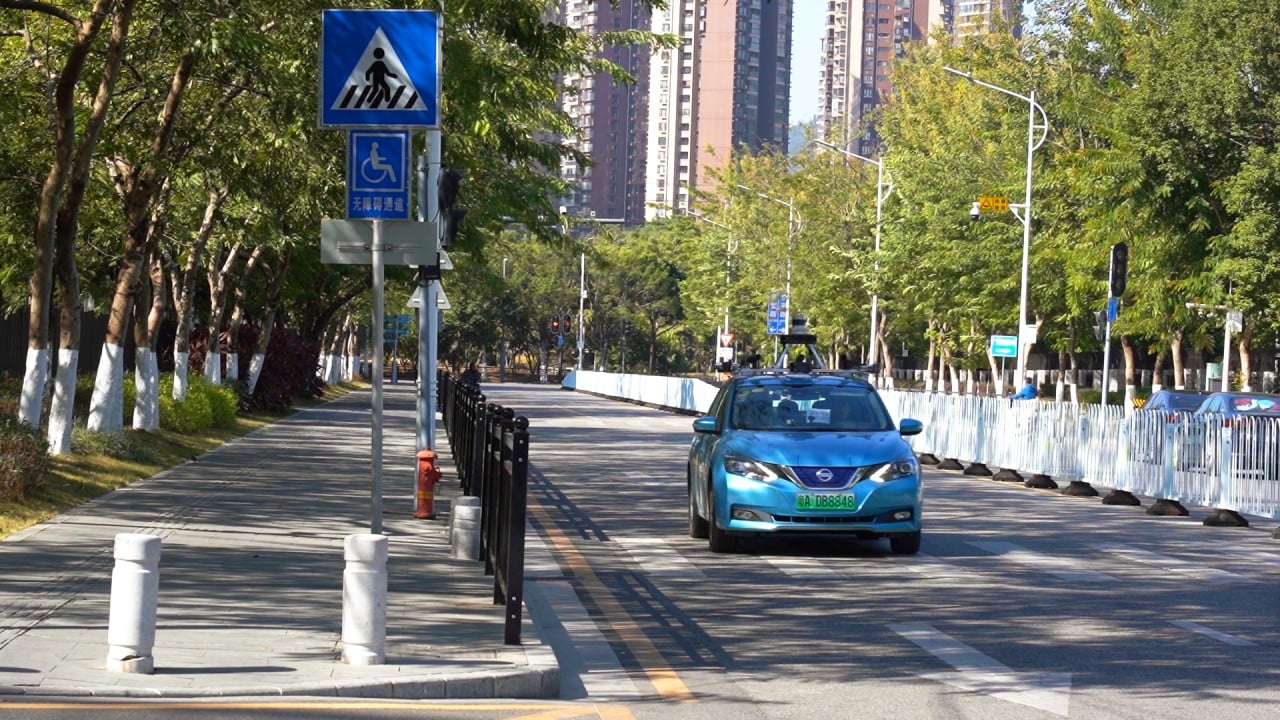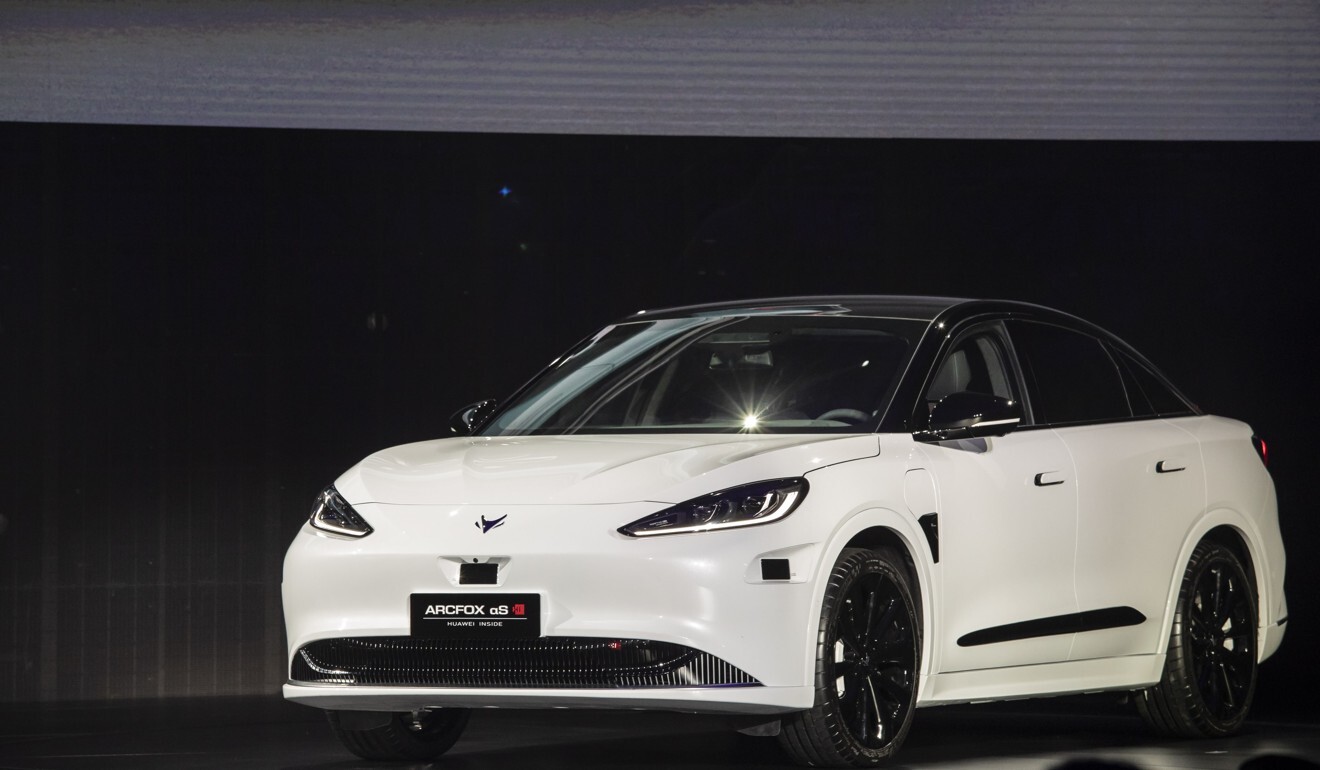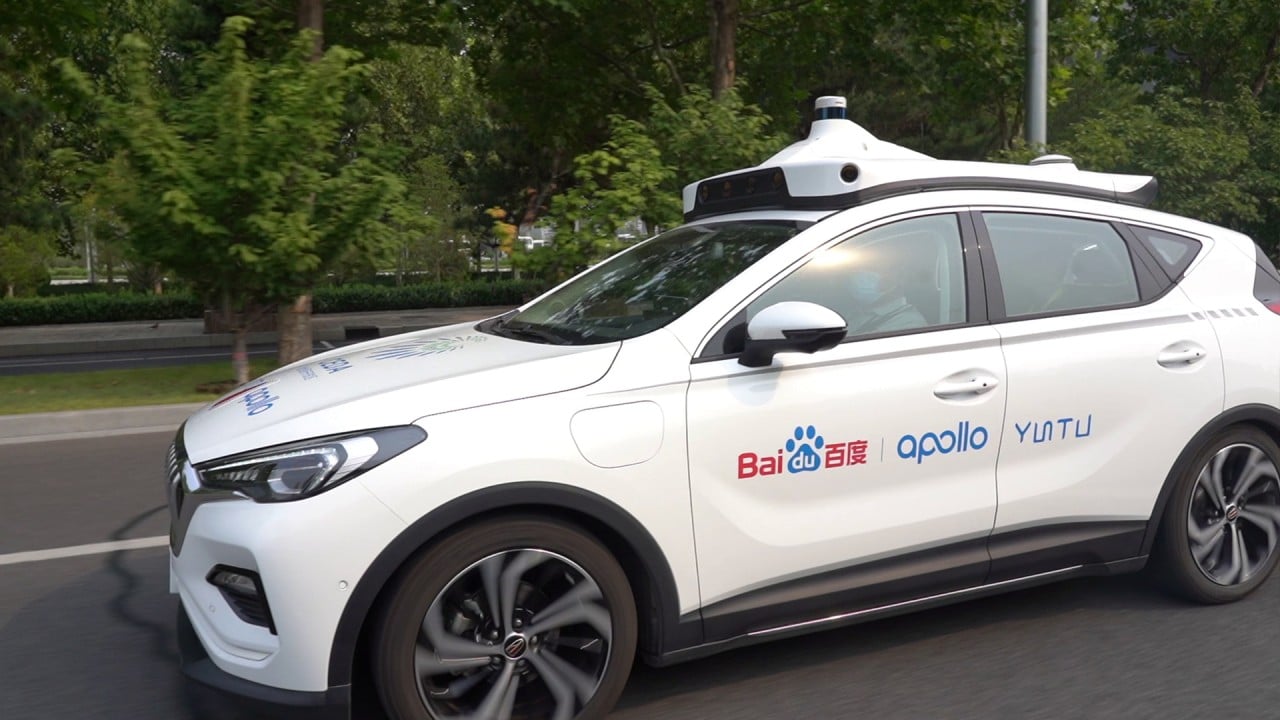
Chinese tech giants Huawei, DJI jump on to the lidar bandwagon as they eye huge potential in self-driving cars
- Three Shenzhen-based tech firms – Huawei Technologies, DJI and RoboSense – expand presence in the lidar sensor segment as development of autonomous cars gathers pace in China
- The first cars fitted with lidar sensors from Huawei and DJI affiliate Livox were displayed at the recently concluded Shanghai car show
Lidar sensors, a critical technology for self-driving cars, has emerged as the new battleground for Chinese tech firms. At the forefront are three Shenzhen-based companies – Huawei Technologies, DJI and RoboSense – that are making their presence felt in the sector amid the rapid development of autonomous vehicles in the mainland.
“The use of lidar in level three to level five unmanned passenger vehicles has gradually become an industry standard,” Qiu said in an interview with the South China Morning Post.
Founded in 2014, RoboSense, also known as Suteng Innovation Technology, is a pioneer in China, debuting its solid-state lidar at CES in Las Vegas, in 2018. More than 30 of the company’s 200 employees hold PhDs. Other leading players in China include Shanghai Hesai Photonics Technology and Shanghai Slamtic.

03:06
China’s self-driving RoboTaxi hits the road
Lidar – light detection and ranging – measures distance using laser beams to generate highly accurate 2D or 3D maps of the world outside the vehicle. The technology is also used in various industries from agriculture to advanced manufacturing. Lidar sensors are described as the “eyes” of autonomous driving.
Yole Développement, a French market intelligence firm, predicts that the global lidar market for automotive and industrial applications will reach US$3.8 billion in 2025, from US$1.7 billion in 2020. Automotive applications are expected to be the main driver for lidar in the next five years, providing US$1.8 billion of growth between 2019 and 2025, according to the report released in August last year.
Lidar technology will definitely be used extensively in developing autonomous driving because the existing sensing equipment and technology is inadequate in preventing accidents on the roads, said Chi Linchun, general manager of marketing and sales at Huawei’s smart car solutions business unit.
“Those existing sensing systems that work well in Western countries may malfunction in China due to the complexities of driving on Chinese roads,” said Chi.

It has been reported that Huawei plans to lift its output of 100,000 lidar sets to 1 million units a year as the use of lidar sensors by carmakers becomes widespread.
With China already leading in the electric car arena, it has now set its sights on autonomous driving. The Ministry of Industry and Information Technology’s has drafted new laws which would allow the testing of autonomous vehicles on highways for the first time, bringing it in line with countries such as US, Britain and Germany that already allow self-driving cars to be tested on public roads.
According to a report on smart vehicles development strategy published in February 2020 by the National Development and Reform Commission, the nations’ top planning body, China is targeting mass production of level-3 autonomous vehicles by 2025. Level 3 autonomous driving allows drivers to safely take their attention off the road under certain conditions.
“Livox has customised its sensor for Xpeng, not only meeting automotive-grade requirements but also delivering cost efficiency and reliability for production models,” the Guangzhou-based carmaker said in a statement.
RoboSense’s Qiu said the company has received a number of lidar orders for mass production vehicle models around the world. It was also in discussion with two mainland electric vehicle makers on new orders. But he did not identify the buyers.
Robosense, which supplies Shanghai-based Inceptio Technology technology for its autonomous driving trucks, is launching what it claims to be China’s first automotive-grade solid-state lidar production line, which is set to go live in the second quarter.
When asked about the competition from tech giants, Qiu said his company has developed expertise and can easily fend off competition.
“We are among the first batch of domestic companies to enter the lidar industry. Our product has been commercialised for more than five years, and has been verified by a large number of driving scenarios, with more mature scenario solutions and technology accumulation,” said Qiu.

04:07
China’s automated driving technology speeds ahead with research by search engine giant Baidu
Lidar suppliers to the automotive industry face three bottlenecks – price, scalability and reliability, analysts said. Besides, lidar has its critics, with Tesla’s CEO Elon Musk among the most vociferous, pointing to its high costs. Musk has called lidar “a fool’s errand”, saying anyone who relied on it was “doomed”.
But Galaxy Securities analyst said in a research note that the price of lidar sensors provided by Huawei to Arcfox could be reduced to as low as US$200 a set.
Chinese lidar makers, whose unit costs are one-fifth that of other global rivals and usually below US$1,000, are gaining market share, according to Yole.
Those who can reach a certain level of capacity will emerge winners, said Xie Tiandi, DJI’s communications director.
“A lidar technology supplier has to be flexible and nimble to churn out the right products to meet the demands of the carmakers,” Xie said.



